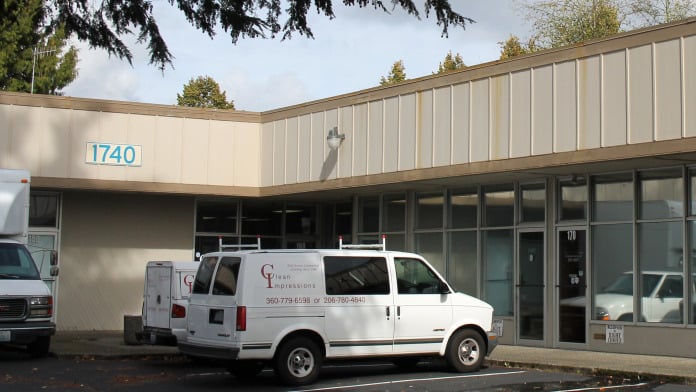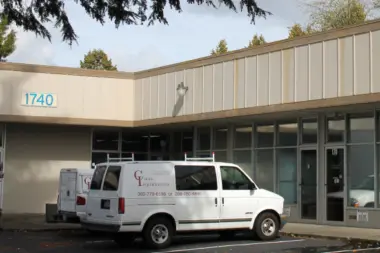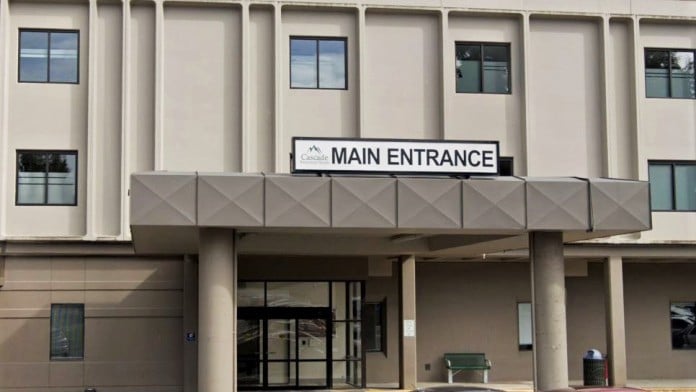My brother tried to get into treatment here a while ago. They never answered his calls and when they did the service was terrible. He got so frustrated that he ended up going somewhere else. I hope that since then they have gotten better.
About Right Choice Counseling Services
A thorough assessment during intake facilitates personalized care delivery. Whether you’re ready to quit entirely or want to cut back, they’ll guide you every step of the way to achieve the best recovery outcomes. Your customized care plan may require an intensive outpatient program (IOP) or a general outpatient program (OP).
Their IOP is more structured and involves more intensive therapy than the general outpatient program. You can expect at least nine hours of weekly group sessions split into three hours daily for three days a week. Their IOP consists of a total of 72 hours of therapy session sessions for eight weeks. This makes the program suitable for people with moderate to severe substance use issues who don’t want residential care.
The OP is more flexible and involves significantly fewer hours. It normally serves as a step down from the IOP. The length may vary according to your recovery needs.
The best thing about these programs is their flexibility. Therapy sessions are designed to fit your schedule so that you can maintain your job or other family obligations while receiving care. The facility even offers evening and limited daytime classes to make things super convenient.
The facility also offers an Alcohol And Drug Information School (ADIS) to support DUI offenders or folks voluntarily seeking education related to substance use. You’ll get to learn how substance use impacts your decision making, the law guiding DUI and how to make smart choices to prevent future legal or personal issues. The class lasts eight hours and is held on the third Saturday of every month.
Their anger management classes and domestic violence counseling can help address underlying issues that may contribute to substance use. These services provide extra support alongside treatment and can help your recovery.
Bremerton is a city in Kitsap County. It lies directly across Puget Sound from Seattle. The facility is located in an urban setting which eases access via private and public transit. Kitsap Transit provides local bus services across Bremerton which can get locals to the facility in no time. Bremerton-Seattle ferries are available for those coming from Seattle. You can use Kitsap Transit to reach the facility upon arriving at Bremerton. The Highway 303 corridor is the most direct route if you’re driving.
Bremerton has many natural features and landmarks that can make your treatment in this clinic exciting should you choose to explore them. These include Lion’s Park, Evergreen Rotary Park and USS Turner Joy Museum Ship.
Latest Reviews
Rehab Score
Gallery


Accepted Insurance
Other Forms of Payment
Private insurance refers to any kind of healthcare coverage that isn't from the state or federal government. This includes individual and family plans offered by an employer or purchased from the Insurance Marketplace. Every plan will have different requirements and out of pocket costs so be sure to get the full details before you start treatment.
Self-pay involves paying for treatment out of your own pocket. You can use savings or credit, get a personal loan, or receive help from family and friends to fund your treatment. If you don't have insurance or your insurance plan doesn't cover a specific program, self-pay can help ensure you still get the care you need.
Military members, veterans, and eligible dependents have access to specific insurance programs that help them get the care they need. TRICARE and VA insurance can help you access low cost or no cost addiction and mental health treatment. Programs that accept military insurance often have targeted treatment focused on the unique challenges military members, veterans, and their families face.
Addiction Treatments
Levels of Care
Outpatient Programs (OP) are for those seeking mental rehab or drug rehab, but who also stay at home every night. The main difference between outpatient treatment (OP) and intensive outpatient treatment (IOP) lies in the amount of hours the patient spends at the facility. Most of the time an outpatient program is designed for someone who has completed an inpatient stay and is looking to continue their growth in recovery. Outpatient is not meant to be the starting point, it is commonly referred to as aftercare.
Intensive Outpatient Programs (IOP) are for those who want or need a very structured treatment program but who also wish to live at home and continue with certain responsibilities (such as work or school). IOP substance abuse treatment programs vary in duration and intensity, and certain outpatient rehab centers will offer individualized treatment programs.
Treatments
The goal of treatment for alcoholism is abstinence. Those with poor social support, poor motivation, or psychiatric disorders tend to relapse within a few years of treatment. For these people, success is measured by longer periods of abstinence, reduced use of alcohol, better health, and improved social functioning. Recovery and Maintenance are usually based on 12 step programs and AA meetings.
Effective drug rehab in Washington integrates care for the whole person, offering comprehensive solutions to addiction. Treatment methods address mental, physical, and relational aspects of substance abuse.
Opioid rehabs specialize in supporting those recovering from opioid addiction. They treat those suffering from addiction to illegal opioids like heroin, as well as prescription drugs like oxycodone. These centers typically combine both physical as well as mental and emotional support to help stop addiction. Physical support often includes medical detox and subsequent medical support (including medication), and mental support includes in-depth therapy to address the underlying causes of addiction.
Substance rehabs focus on helping individuals recover from substance abuse, including alcohol and drug addiction (both illegal and prescription drugs). They often include the opportunity to engage in both individual as well as group therapy.
Programs
Adult rehab programs include therapies tailored to each client's specific needs, goals, and recovery progress. They are tailored to the specific challenges adult clients may face, including family and work pressures and commitments. From inpatient and residential treatment to various levels of outpatient services, there are many options available. Some facilities also help adults work through co-occurring conditions, like anxiety, that can accompany addiction.
Young adulthood can be an exciting, yet difficult, time of transition. Individuals in their late teens to mid-20s face unique stressors related to school, jobs, families, and social circles, which can lead to a rise in substance use. Rehab centers with dedicated young adult programs will include activities and amenities that cater to this age group, with an emphasis on specialized counseling, peer socialization, and ongoing aftercare.
Clinical Services
Group therapy is any therapeutic work that happens in a group (not one-on-one). There are a number of different group therapy modalities, including support groups, experiential therapy, psycho-education, and more. Group therapy involves treatment as well as processing interaction between group members.
Staff & Accreditations
Staff
Kent Loveless
Clinical Director & Administrator
Accreditations

The Substance Abuse and Mental Health Services Administration (SAMHSA) is a branch of the U.S. Department of Health and Human Services. Established in 1992 by congress, SAMHSA's mission is to reduce the impact of substance abuse and mental illness on American's communities.
SAMHSA Listed: Yes

State Licenses are permits issued by government agencies that allow rehab organizations to conduct business legally within a certain geographical area. Typically, the kind of program a rehab facility offers, along with its physical location, determines which licenses are required to operate legally.
State License: Washington
Contact Information
1740 Ne Riddell Road
Suite 170
Bremerton, WA 98310














